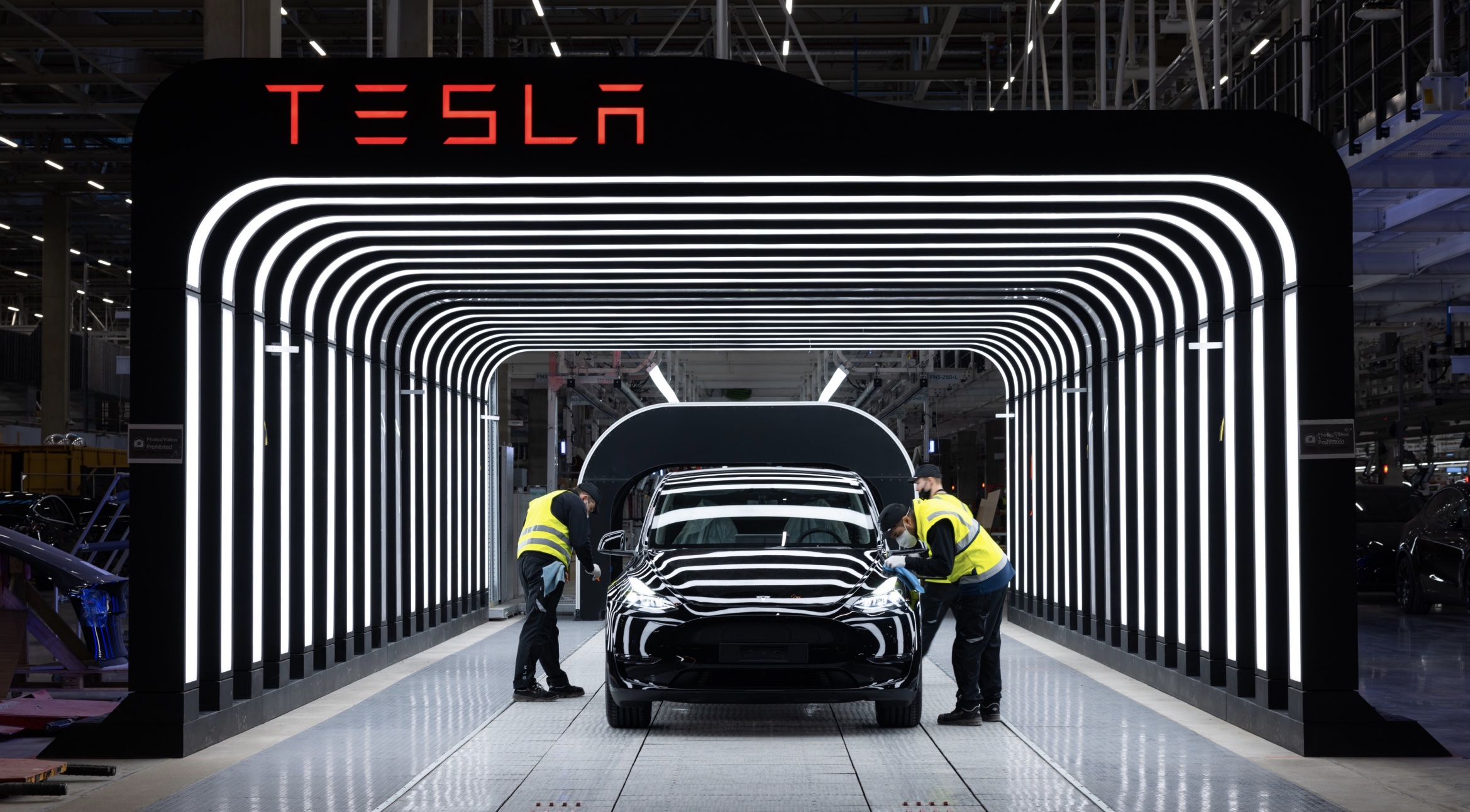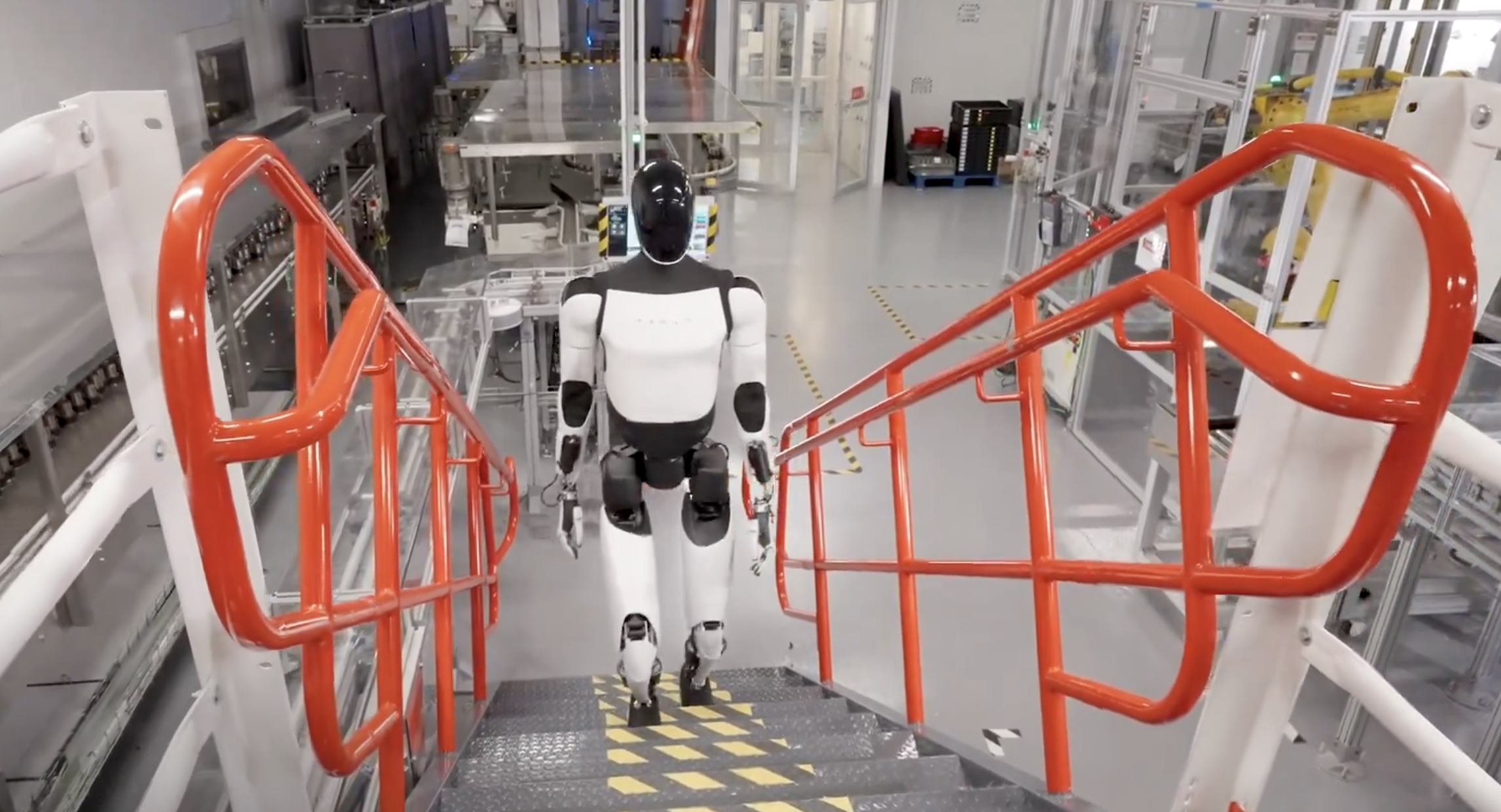

Investor's Corner
Tesla (TSLA) Q1 2022 earnings results: Another beat with 19% operating profit and margin
Tesla’s (NASDAQ:TSLA) first-quarter 2022 earnings saw the company post a challenging yet impressive quarter. The results, which were discussed in the Q1 2022 Update Letter, were released after the closing bell on Wednesday, April 20, 2022.
Tesla was impressive in the first quarter, with the company producing a total of 305,407 vehicles and delivering 310,048. The lion’s share of these numbers remains the Model 3 and Model Y, though Model S and Model Y output has improved over previous quarters.
The following is a quick overview of Tesla’s Q1 2022 results.
Revenue
Tesla posted total revenues of $18.756 billion with a gross profit of $5.460 billion. In comparison, analysts expected Tesla to post a revenue of $17.8 billion. Tesla cited a growth in vehicle deliveries, increasing average selling price, and growth in other parts of its business as a source of its revenue growth.
Earnings Per Share
Tesla posted non-GAAP earnings per share of $3.22 per share. This is notably higher than the Street’s estimates, which expected that the electric vehicle maker would be posting an EPS of $2.27 per share.
Profitability
Tesla posted $3.6B GAAP operating income and an impressive 19.2% operating margin in the first quarter, as well as GAAP net income of $3.3B and non-GAAP net income (ex-SBC1 ) of $3.7B in Q1 2022. Overall, the company posted GAAP Automotive gross margin of 32.9% in the first quarter.
Cash
Tesla noted that its quarter-end cash, cash equivalents and short-term marketable securities increased sequentially by $0.3 billion to $18.0 billion in the first quarter. The company added that its total debt excluding vehicle and energy product financing fell to less than $0.1B at the end of Q1 2022.
Vehicle Factories
Tesla noted that the first quarter saw several challenges from the global supply chain, transportation, labor, and manufacturing. These challenges ultimately limited the company’s ability to run its factories at full capacity. This was most evident in Giga Shanghai, which was hit by China’s Covid lockdowns. Fortunately, Tesla’s Giga Berlin-Brandenburg and Giga Texas are ramping together with the Fremont Factory.
Battery Technology
Tesla noted that diversification is the name of the game with battery and powertrain tech, as evidenced by the company’s decision to use cobalt-free LFP batteries for its standard range vehicle line.
“Diversification of battery chemistries is critical for long-term capacity growth, to better optimize our products for their various use cases and expand our supplier base. This is why nearly half of Tesla vehicles produced in Q1 were equipped with a lithium iron phosphate (LFP) battery, containing no nickel or cobalt. Currently, LFP batteries are used in most of our standard range vehicle products, as well as commercial energy storage applications. As a result of our energy efficient motors, a Model 3 with an LFP battery pack can still achieve a 267-mile EPA range,” Tesla wrote.
Tesla Energy
Tesla Energy actually showed quite a lot of growth in the first quarter, with deployments increasing by 90% year-over-year to 846 MWh. This was driven by strong Powerwall deployments. Solar deployments, however, decreased by 48% in Q1 to 48 MW, due to import delays on certain solar components.
Following is Tesla’s Q1 2022 Update Letter:
TSLA-Q1-2022-Update by Simon Alvarez on Scribd
Disclaimer: I am long TSLA.
Don’t hesitate to contact us with news tips. Just send a message to simon@teslarati.com to give us a heads up.
Investor's Corner
Tesla could save $2.5B by replacing 10% of staff with Optimus: Morgan Stanley
Jonas assigned each robot a net present value (NPV) of $200,000.

Tesla’s (NASDAQ:TSLA) near-term outlook may be clouded by political controversies and regulatory headwinds, but Morgan Stanley analyst Adam Jonas sees a glimmer of opportunity for the electric vehicle maker.
In a new note, the Morgan Stanley analyst estimated that Tesla could save $2.5 billion by replacing just 10% of its workforce with its Optimus robots, assigning each robot a net present value (NPV) of $200,000.
Morgan Stanley highlights Optimus’ savings potential
Jonas highlighted the potential savings on Tesla’s workforce of 125,665 employees in his note, suggesting that the utilization of Optimus robots could significantly reduce labor costs. The analyst’s note arrived shortly after Tesla reported Q2 2025 deliveries of 384,122 vehicles, which came close to Morgan Stanley’s estimate and slightly under the consensus of 385,086.
“Tesla has 125,665 employees worldwide (year-end 2024). On our calculations, a 10% substitution to humanoid at approximately ($200k NPV/humanoid) could be worth approximately $2.5bn,” Jonas wrote, as noted by Street Insider.
Jonas also issued some caution on Tesla Energy, whose battery storage deployments were flat year over year at 9.6 GWh. Morgan Stanley had expected Tesla Energy to post battery storage deployments of 14 GWh in the second quarter.
Musk’s political ambitions
The backdrop to Jonas’ note included Elon Musk’s involvement in U.S. politics. The Tesla CEO recently floated the idea of launching a new political party, following a poll on X that showed support for the idea. Though a widely circulated FEC filing was labeled false by Musk, the CEO does seem intent on establishing a third political party in the United States.
Jonas cautioned that Musk’s political efforts could divert attention and resources from Tesla’s core operations, adding near-term pressure on TSLA stock. “We believe investors should be prepared for further devotion of resources (financial, time/attention) in the direction of Mr. Musk’s political priorities which may add further near-term pressure to TSLA shares,” Jonas stated.
Investor's Corner
Two Tesla bulls share differing insights on Elon Musk, the Board, and politics
Two noted Tesla bulls have shared differing views on the recent activities of CEO Elon Musk and the company’s leadership.

Two noted Tesla (NASDAQ:TSLA) bulls have shared differing views on the recent activities of CEO Elon Musk and the company’s leadership.
While Wedbush analyst Dan Ives called on Tesla’s board to take concrete steps to ensure Musk remains focused on the EV maker, longtime Tesla supporter Cathie Wood of Ark Invest reaffirmed her confidence in the CEO and the company’s leadership.
Ives warns of distraction risk amid crucial growth phase
In a recent note, Ives stated that Tesla is at a critical point in its history, as the company is transitioning from an EV maker towards an entity that is more focused on autonomous driving and robotics. He then noted that the Board of Directors should “act now” and establish formal boundaries around Musk’s political activities, which could be a headwind on TSLA stock.
Ives laid out a three-point plan that he believes could ensure that the electric vehicle maker is led with proper leadership until the end of the decade. First off, the analyst noted that a new “incentive-driven pay package for Musk as CEO that increases his ownership of Tesla up to ~25% voting power” is necessary. He also stated that the Board should establish clear guidelines for how much time Musk must devote to Tesla operations in order to receive his compensation, and a dedicated oversight committee must be formed to monitor the CEO’s political activities.
Ives, however, highlighted that Tesla should move forward with Musk at its helm. “We urge the Board to act now and move the Tesla story forward with Musk as CEO,” he wrote, reiterating its Outperform rating on Tesla stock and $500 per share price target.
Tesla CEO Elon Musk has responded to Ives’ suggestions with a brief comment on X. “Shut up, Dan,” Musk wrote.
Cathie Wood reiterates trust in Musk and Tesla board
Meanwhile, Ark Investment Management founder Cathie Wood expressed little concern over Musk’s latest controversies. In an interview with Bloomberg Television, Wood said, “We do trust the board and the board’s instincts here and we stay out of politics.” She also noted that Ark has navigated Musk-related headlines since it first invested in Tesla.
Wood also pointed to Musk’s recent move to oversee Tesla’s sales operations in the U.S. and Europe as evidence of his renewed focus in the electric vehicle maker. “When he puts his mind on something, he usually gets the job done,” she said. “So I think he’s much less distracted now than he was, let’s say, in the White House 24/7,” she said.
TSLA stock is down roughly 25% year-to-date but has gained about 19% over the past 12 months, as noted in a StocksTwits report.
Investor's Corner
Cantor Fitzgerald maintains Tesla (TSLA) ‘Overweight’ rating amid Q2 2025 deliveries
Cantor Fitzgerald is holding firm on its bullish stance for the electric vehicle maker.

Cantor Fitzgerald is holding firm on its bullish stance for Tesla (NASDAQ: TSLA), reiterating its “Overweight” rating and $355 price target amidst the company’s release of its Q2 2025 vehicle delivery and production report.
Tesla delivered 384,122 vehicles in Q2 2025, falling below last year’s Q2 figure of 443,956 units. Despite softer demand in some countries in Europe and ongoing controversies surrounding CEO Elon Musk, the firm maintained its view that Tesla is a long-term growth story in the EV sector.
Tesla’s Q2 results
Among the 384,122 vehicles that Tesla delivered in the second quarter, 373,728 were Model 3 and Model Y. The remaining 10,394 units were attributed to the Model S, Model X, and Cybertruck. Production was largely flat year-over-year at 410,244 units.
In the energy division, Tesla deployed 9.6 GWh of energy storage in Q2, which was above last year’s 9.4 GWh. Overall, Tesla continues to hold a strong position with $95.7 billion in trailing twelve-month revenue and a 17.7% gross margin, as noted in a report from Investing.com.
Tesla’s stock is still volatile
Tesla’s market cap fell to $941 billion on Monday amid volatility that was likely caused in no small part by CEO Elon Musk’s political posts on X over the weekend. Musk has announced that he is forming the America Party to serve as a third option for voters in the United States, a decision that has earned the ire of U.S. President Donald Trump.
Despite Musk’s controversial nature, some analysts remain bullish on TSLA stock. Apart from Cantor Fitzgerald, Canaccord Genuity also reiterated its “Buy” rating on Tesla shares, with the firm highlighting the company’s positive Q2 vehicle deliveries, which exceeded its expectations by 24,000 units. Cannacord also noted that Tesla remains strong in several markets despite its year-over-year decline in deliveries.
-

 Elon Musk1 week ago
Elon Musk1 week agoTesla investors will be shocked by Jim Cramer’s latest assessment
-

 Elon Musk3 days ago
Elon Musk3 days agoElon Musk confirms Grok 4 launch on July 9 with livestream event
-

 Elon Musk14 hours ago
Elon Musk14 hours agoxAI launches Grok 4 with new $300/month SuperGrok Heavy subscription
-

 News7 days ago
News7 days agoTesla Model 3 ranks as the safest new car in Europe for 2025, per Euro NCAP tests
-

 Elon Musk2 weeks ago
Elon Musk2 weeks agoA Tesla just delivered itself to a customer autonomously, Elon Musk confirms
-

 Elon Musk1 week ago
Elon Musk1 week agoxAI’s Memphis data center receives air permit despite community criticism
-

 Elon Musk2 weeks ago
Elon Musk2 weeks agoTesla’s Omead Afshar, known as Elon Musk’s right-hand man, leaves company: reports
-

 News2 weeks ago
News2 weeks agoXiaomi CEO congratulates Tesla on first FSD delivery: “We have to continue learning!”
















